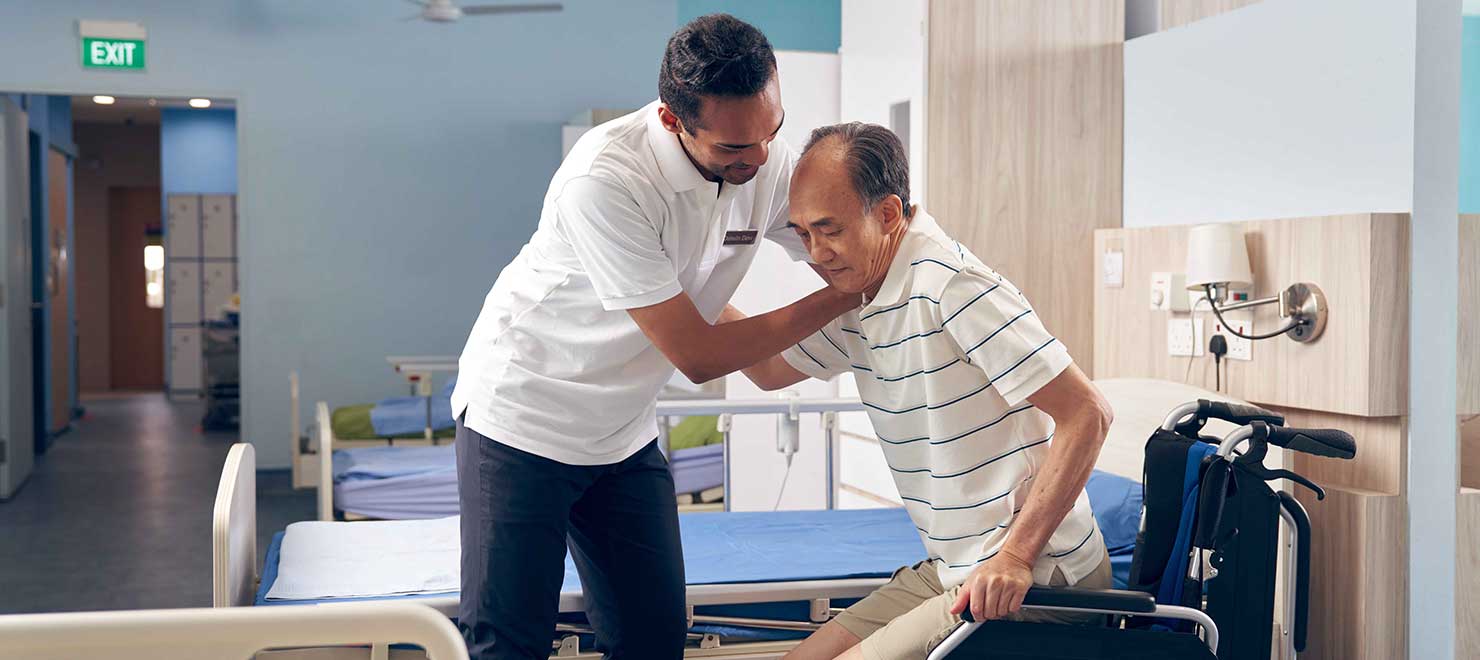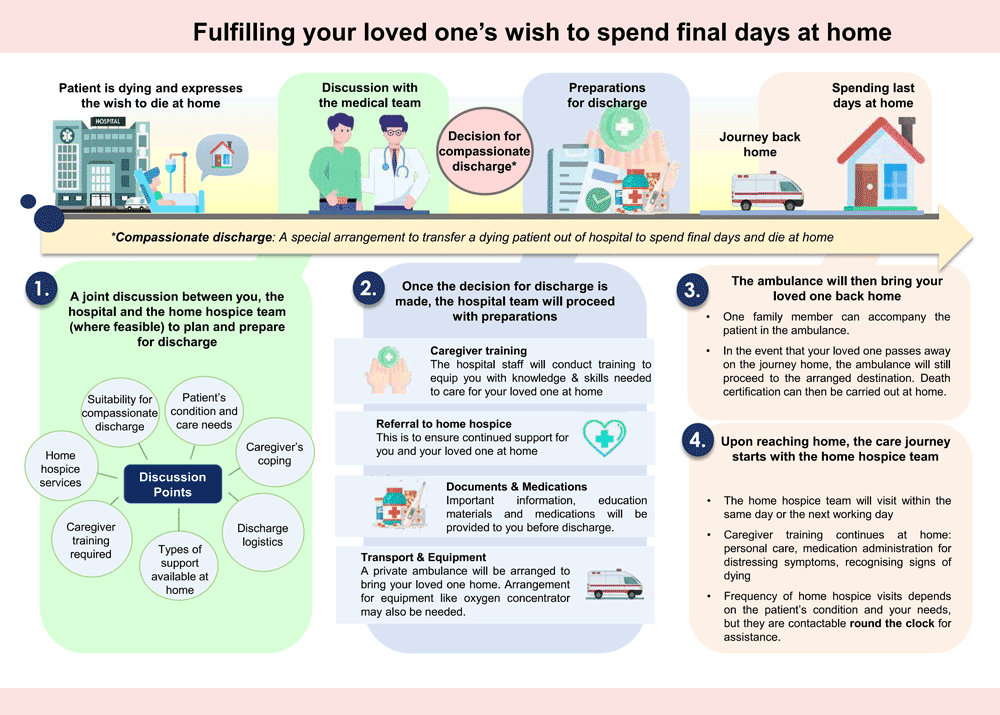
Compassionate discharge is a special arrangement to transfer your loved one out of hospital and spend their final days at home where they pass on eventually.
5 important questions to ask yourself to make your loved one’s final moments comfortable at home.
You just heard news from the doctor to be prepared for the worst as your loved one may be experiencing their final moments. You want to fulfil your loved one’s wish to spend their final days surrounded by family. Here are some questions you need to ask yourself if you should proceed with Compassionate Discharge (ComD).
Is home hospice care available and suitable for my loved one?
- Discuss with your loved one’s medical team about ComD, and learn about the care needs you need to meet for your loved one
- Things to consider when making the decision:
- Is everyone at home agreeable for the discharge?
- Is there someone available round the clock at home to provide physical care? It is important for caregivers to take turns in providing care so that everyone has enough rest.
- There is a possibility that your loved one may live beyond the expected lifespan of short hours or days. While you’ll be introduced to a home hospice care team who will journey with you when your loved one is at home, do learn about the alternative care options with the medical team if continued caregiving is required (e.g. inpatient hospice).
- Does the care needs go beyond what you can manage with the home hospice team’s support? Everyone will have different needs during their last days of life. Some people may have symptoms that can be challenging to manage at home. If this is the case, you may want to consider having your loved one to be cared for in an inpatient hospice. This may enable you to spend more quality time with him/her.
What is the compassionate discharge process like?

Source: Singapore Hospice Council
How do I get my home ready for my loved one?
- Consult with your loved one’s medical team on the medical equipment and devices needed.
- Inform the home palliative care or hospice providers that you need their support in getting the necessary equipment or devices.
- For other providers of medical equipment and devices, you can refer to the list of useful contacts in page 13 of this Caregiver Guide prepared by Singapore Hospice Council.
- You can also explore the Equipment Rental Scheme for further assistance.
How do I care for my loved one during their final days and moments?
- Understand the support you can get from the palliative care team or home hospice team who will be there for you throughout this journey. Keep their contact number within your reach.
- Learn about the physical signs during the ‘final hours’, the common symptoms (e.g. pain, shortness of breath) that your loved one may experience, and how to make them feel comfortable.
- As a caregiver, remember to take a break from time to time, and be open to getting help from others. Get more information through this comprehensive Caregiver Guide.
- Find out about the practical things when death occurs, such as knowing the tell-tale signs of death, arranging for a death certificate, letting others know of the passing and etc.
Are there other forms of support for caregivers like me?
Yes, there are. AIC provides support for caregivers in terms of:
- Guides & Resources for practical tools and information for your caregiving journey
- Care services and financial support suitable for yourself and your loved one
- Financial assistance to help with your caregiving expenses
- Learn to care better through workshops tailored to your needs
If you need further caregiving advice and support, contact us via email, phone or visit us. We are here to help you in your caregiving journey.
